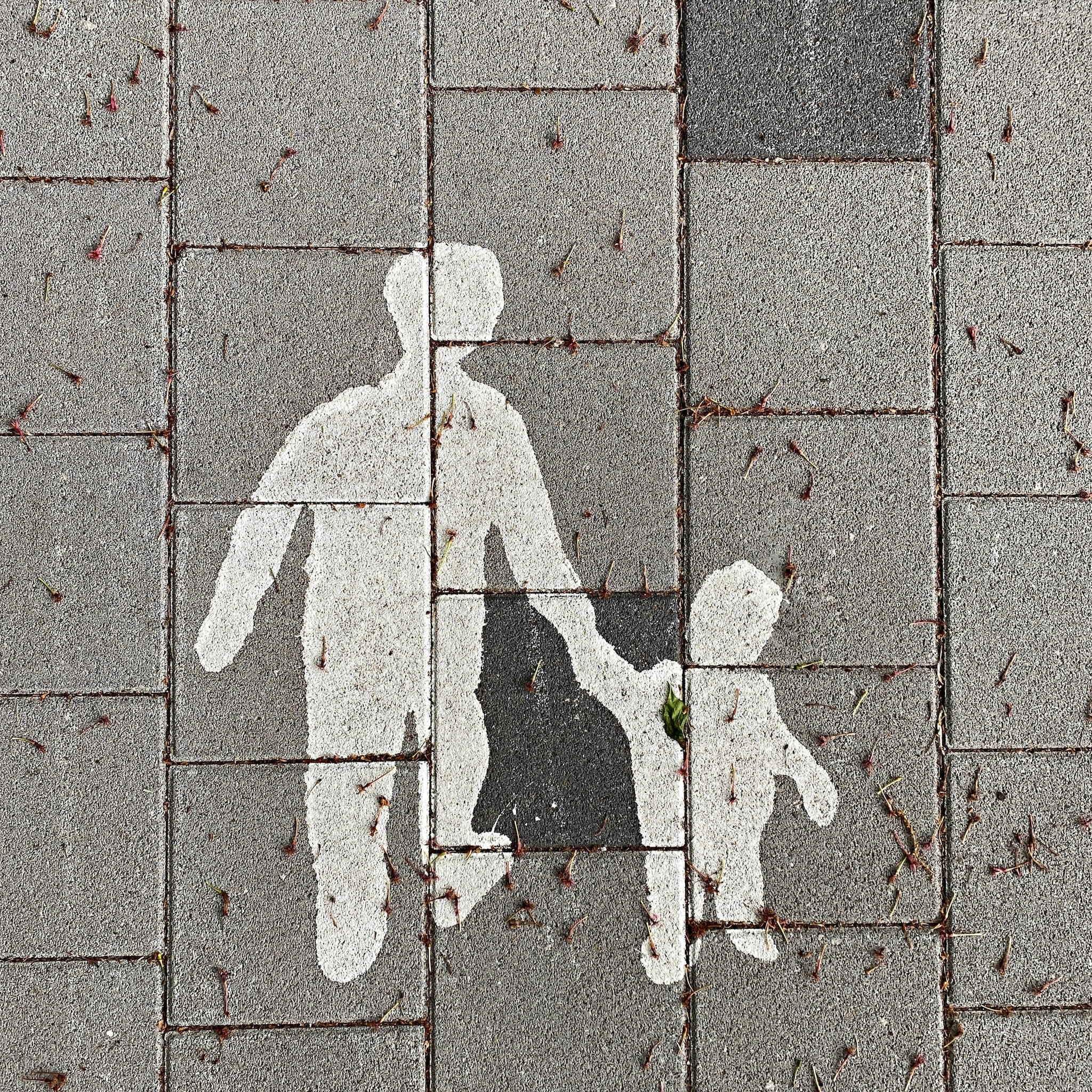
Legal Guardian vs. Biological Parent: What You Need to Know
A child’s biological parent is the natural father or mother of the child. Biological parents are related to their children by blood. Even when a mother and father are not married, the child’s biological father always has the right to establish paternity, and once paternity is established has the legal responsibility to provide financially for his child.
Legal guardians have the same rights as biological parents, but a legal guardian is not always a child’s mother or father and may or may not be related to a child by blood. For example, a grandparent might be appointed a child’s legal guardian if for some reason a child’s mother and father cannot care for a child. Or a legal guardian might not be related to the child at all but may be appointed by the court to care and make decisions for the child because the child’s biological parents, for whatever reason, cannot perform parental functions.
Biological parents and legal guardians share similar rights. Biological parents and legal guardians have the right to make decisions about how a child will be raised, including how the child will be educated, what kinds of medical decisions will be made, and what kind of religious upbringing the child will receive. Biological parents and legal guardians also both have the right to care and participate in raising the child.
In most situations, a child will be raised by one or both biological parents. Even if the parents get divorced, both parents will retain the right to make decisions about how the child will be raised and have the right to participate in the care and upbringing of the child. Both parents will also share the responsibility of providing for the child financially.
Yet sometimes a child’s biological parents are not able to care for a child. In some cases, the parents may voluntarily decide to appoint a guardian because they believe it is in the best interests of their children (perhaps they find themselves unable to care for their children because of some medical or psychological issue).
In other cases, there may be evidence that a parent cannot care or make decisions for his or her biological children, and in this case, the court may appoint a guardian to care for the children until the parent is able to do so, and if the parent is unable to care for the children long-term, parental rights might be terminated.
If you find yourself in a situation where you have a terminal illness, medical condition, or are in another situation where you would like to appoint someone to be your child’s legal guardian, you may want to hire a guardianship lawyer in Seattle, Washington to help you with this process.
If, on the other hand, you find yourself facing termination of parental rights, or believe the court may appoint a guardian for your children because you are being accused of being unable to exercise parenting functions as defined by Washington law, a Seattle, Washington guardianship lawyer may be able to help you.
If you need help either establishing legal guardianship for your children or if you want to fight the court appointment of a legal guardian for your children, you may want to speak to a guardianship lawyer in Seattle, Washington at Truce Law today.
What are parenting functions under Washington law?
Washington law defines “parenting functions” as making decisions and caring for the growth and development of the child. Parenting functions include:
- Developing and maintaining a stable, loving, consistent, and nurturing relationship with the child.
- Caring for a child’s daily needs, including feeding, clothing, grooming, and providing for developmentally appropriate activities appropriate to the family’s socioeconomic circumstances.
- Providing for a child’s day care, health care, and other needs.
- Ensuring that the child is properly educated, either through the public school system, private education, or through home schooling.
- Helping the child foster relationships with other people.
- Financially supporting the child.
If a parent cannot provide these functions for any reason, a guardian might be appointed. Issues that can interfere with a parent’s ability to perform parenting functions can include deployment, active military duty, temporary duty, medical conditions, domestic violence, substance abuse, or death.
What is legal guardianship?
According to the King County Superior Court, guardianship is when “a court appoints someone to make decisions and act for someone else.” A guardian for a minor child is appointed to perform the parenting functions defined above.
What are biological parents?
A biological parent is either the genetic father of the child or the mother who gave birth to the child (genetic mother). Biological parents are related to their children by blood. Their children share their DNA.
Legal Guardian vs. Biological Parent: The Difference
A child’s biological parents have automatic rights to make decisions for their children and to raise their children as they see fit. Biological parents also have a responsibility to perform parenting functions, which can include caretaking, providing for a child’s needs, nurturing, education, and financial support.
A child is born to his or her biological parents. You cannot choose your biological parents. Your mother carried you in her womb for nine months and your father is genetically related to you.
A legal guardian, on the other hand, is a person appointed by the court to provide parenting functions for a child (which can include feeding, caretaking, financial support, and other supports a child needs). Sometimes a child’s biological parent might petition the court to appoint a legal guardian of their choosing if the biological parent is sick, has a terminal illness, or otherwise cannot care for the child.
A biological parent may choose to do this if he or she has someone specifically in mind that he or she wants caring for his or her child, like a grandparent, relative, or close family friend.
In other cases, the court may appoint a legal guardian against a biological parent’s wishes if there is “clear and convincing evidence” that no biological parent of the child “is willing or able to exercise parenting functions” or if parental rights have been terminated.
In cases of violence, incarceration, domestic abuse, substance abuse, deployment, or illness, the court may appoint a legal guardian to ensure the child is cared for.
What Decision-Making Power do Custodians and Guardians Have?
According to King County Superior Court, a custodian or guardian has the right to do things for a child a parent would normally do. This includes caring for the child, making decisions regarding the child’s education and religious upbringing, making healthcare decisions for the child, and providing financially for the child.
How Long Does Guardianship Last?
How long guardianship will last depends on the type of guardianship sought. There are two types of minor guardianship cases in King County: Minor Guardianship and Emergency Minor Guardianship.
- Minor Guardianship is long-term and can potentially last as long as a child is a minor. It can take up to 60 days to finalize this type of guardianship case because a person filing for Minor Guardianship will need to file all paperwork telling the court they are seeking a Minor Guardianship, explaining the reasons why they are seeking a Minor Guardianship, and provide the court with a criminal history of the person seeking Minor Guardianship and criminal history of anyone residing in his or her home. The child’s biological parents will need to be served the paperwork; all parties who need to be served the paperwork must also formally receive the paperwork. After the paperwork has been filed and served, you’ll have 60 days to resolve any other issues that can arise, like appointing a court visitor, appointing an attorney for the biological parent, or appointing a guardian ad-litem. Before you can go to court, all steps must be completed, including ensuring that all paperwork has been served, proper notice has been given to interested parties, criminal background checks performed, and checking that any other professionals who need to be appointed have been appointed.
- Emergency Minor Guardianship can be requested if a legal guardian needs to be appointed right away and the child cannot wait the 60 days for a Minor Guardianship case to unfold. Emergency Minor Guardianship may be filed by a concerned adult if you believe a child’s biological parents can no longer perform parenting functions and the child needs to be placed in the care of a guardian right away. Emergency Minor Guardianship orders can be extended by 60 day increments as needed.
Appointing a legal guardian for a child can be complicated enough when the biological parents agree that it’s the right thing to do. When the biological parents fight to maintain custody of the children, the process can be even more complicated.
If you are a biological parent looking to appoint a guardian, are a biological parent trying to fight a Minor Guardianship case, or are a concerned family member or adult looking to seek guardianship for a child where you believe the parents are no longer able to perform parental functions, you may want to speak to a guardianship lawyer in Seattle, Washington at Truce Law.
Our guardianship attorney can review your situation, help you understand your rights and options, and take steps to ensure that the best interests of the child are served.
Do Guardians Have Greater Rights Than Biological Parents?
Guardians have the same rights of biological parents, no more, no less.
Can You Be the Guardian of an Adult?
Yes, you can be the guardian of an adult. If an adult is no longer able to make financial decisions or medical decisions on his or her behalf, you can file for guardianship. An adult may be placed under a guardianship if he or she becomes too sick or disabled to make decisions for him or herself.
A person with advanced Alzheimer’s disease may be placed under a guardianship, or an adult in a coma or a developmentally delayed adult may be placed under a guardianship.
Does Guardianship Lead to Adoption?
Guardianship is distinct from adoption. With adoption, a biological parent’s rights are terminated and another person or couple legally adopts the child as their own. The adopted parents are considered the child’s legal parents and can play the role of a child’s biological parents (as mother and father).
With guardianship, the guardian has the same legal rights as a parent and can make the same legal decisions regarding a child’s care, nurturing, education, healthcare, and finances, but with a guardianship, the guardian won’t play the role of mother or father.
A guardian might be a child’s grandparent, aunt, close friend, or other person. If the child’s biological parents are able to correct the reasons why the guardianship had to be established, they could potentially get custody of their children again. With adoption, the biological parent’s parental rights are terminated, and the biological parent can no longer regain custody.
What is the Difference Between Guardianship and Adoption?
With adoption, the rights of the child’s biological parents are terminated, and the adoptive parents take on the role of mother and father. With guardianship, the guardian may be able to make the same legal decisions as a parent, but often the biological parent’s rights are not terminated.
If the child’s biological parent can fix the situation that led to the guardianship, he or she can petition the court to resume parental rights. Guardianship may be necessary for a range of reasons. If the biological parent is sick, incapacitated, suffering from substance abuse disorder, or is involved in a violent relationship, or is in jail, or is deployed, the parent may not be able to perform parental functions. In some cases, these circumstances may only be temporary.
A parent may need time to heal, recover, attend substance abuse treatment, leave a violent relationship, serve his or her time in jail, or return from deployment.
Who Appoints a Custodian or Guardian?
A custodian or guardian must be appointed by the court. Whether you’re looking for temporary guardianship or long-term guardianship, you’ll need to file your case in court.
Do You Need a Lawyer for Guardianship?
Seeking guardianship or appointing a guardian for a minor child can be a complicated process. There are whole flowcharts in King County just to describe the process. It can be very difficult to remove a child from the care of his or her biological parent.
The person who wants to assume guardianship will need to prove to the court that the child’s biological parents are either unwilling or unable to perform parenting functions. It can be helpful to have a Seattle, Washington guardianship lawyer at Truce Law on your side, to help you navigate the process.
How Truce Law Can Help You with Guardianship
The guardianship lawyers in Seattle, Washington at Truce Law can help you with every step of the guardianship process. Whether you need to file for Emergency Minor Guardianship or Minor Guardianship, Truce Law is here to help you.
If you need to seek Emergency Minor Guardianship, we understand that time is of the essence. A child’s safety and wellbeing may be in the balance. Contact the guardianship lawyers in Seattle, Washington at Truce Law today. We can help. If you are a parent in need of appointing a family member or friend to be a guardian, Truce Law is a guardianship lawyer in Seattle, Washington that can ensure that your wishes are honored.
Key Takeaways
Guardianship can be a complicated area of the law. When it comes to removing children from the care of their biological parents, the courts tend to be very conservative. In most cases, it is in the children’s best interests to be cared for and raised by their biological parents. But there are special circumstances, like illness, deployment, or other situations where a guardianship may be necessary.
The legal process of filing for guardianship or asking the court to appoint a guardian can be very complicated and can involve many steps that must be followed precisely. Having a guardianship lawyer in Seattle, Washington like Truce Law to help you navigate the process can make all the difference in the world.
If you need an Emergency Minor Guardianship, for example, you’ll need to act fast. But even if you are looking for long-term guardianship or are planning because you have a terminal illness or want to put your children in the care of someone you trust, hiring a guardianship lawyer in Seattle, Washington at Truce Law can help you with the process.



